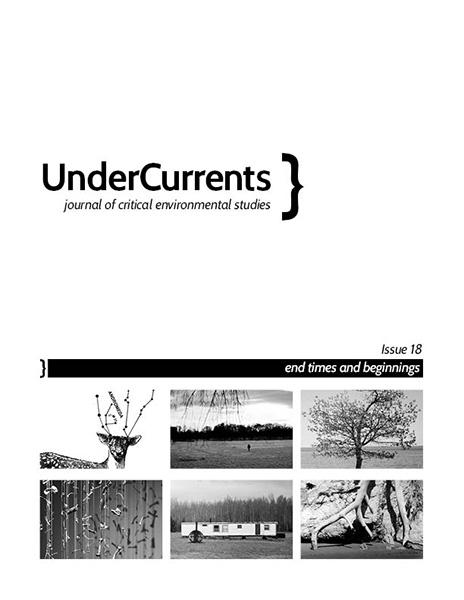The Imaginations of Humanitarian Assistance: A Machete to Counter the Crazy Forest of Varying Trajectories
DOI:
https://doi.org/10.25071/2292-4736/38546Abstract
The United Nations cited the 2010 monsoon floods in Pakistan as the largest humanitarian crisis in living memory. The environmental catastrophe effected twenty million people and highlighted the complicated relationship between nature and society. The lives of extremely vulnerable groups such as subsistence farmers and unskilled labourers were severely disrupted by this catastrophe, forcing national and international observers to confront the uneven distribution of harm based on social factors in the wake of environmental disaster. In this visual essay, I explore the slow raging violence of floodwaters, which I witnessed as a humanitarian worker, and narrate a point of departure from social interventions after environmental collapse. The accompanying counter narratives draw the viewer’s attention to the politics of representation. They reveal the dominant discourses of domination of the Third World subaltern as enacted by humanitarian agencies. By juxtaposing photos and text, I invite the viewer to engage in a generative encounter that takes note of the tensions between disrupted communities and systems of international assistance.
....

THE DE-POLITIZATION OF HUMANITARIAN AID PRACTICE
Downloads
Published
How to Cite
Issue
Section
License
Copyright (c) 2014 Omer AijaziCreators retain copyright for all writings and artwork published in UnderCurrents. New material published as of Volume 21 (2022) is available under a Creative Commons Attribution 4.0 International License (CC-BY 4.0).


